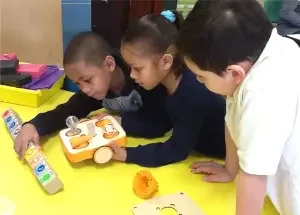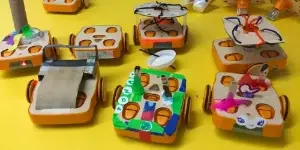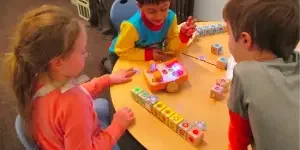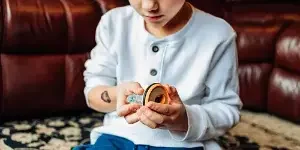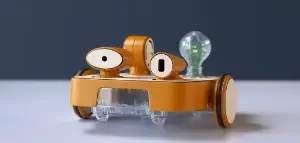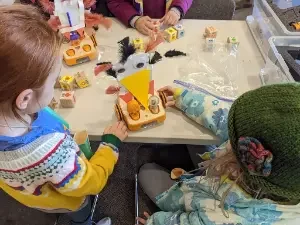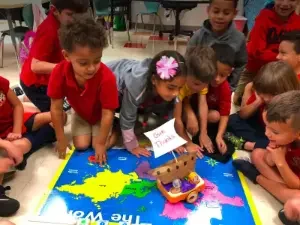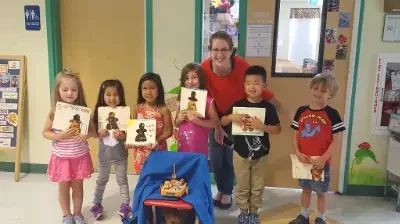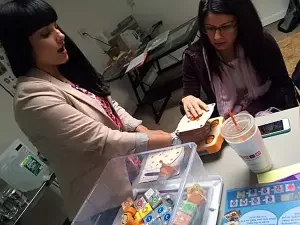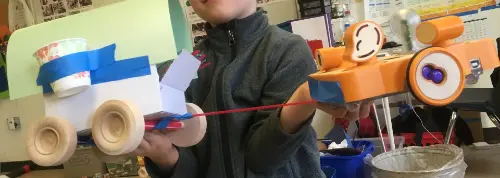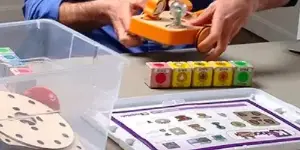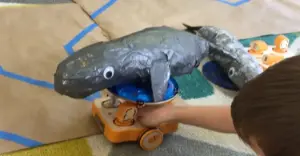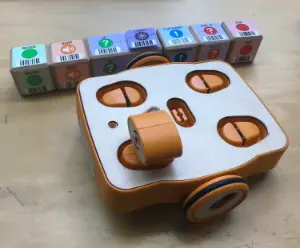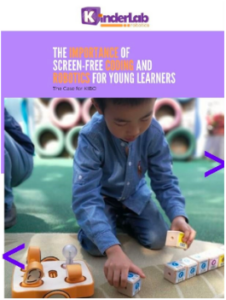New Book Explores Coding, Creating, and Play in Early Childhood
In Coding as a Playground, Dr. Marina Umaschi Bers offers research-based evidence for teaching kids STEAM topics and collaboration
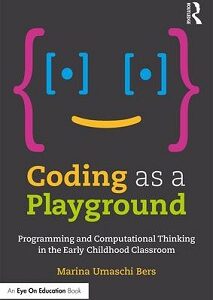 (Waltham, MA) September 12, 2017 — Dr. Marina Umaschi Bers is pleased to announce the immediate availability of her newest book focused on how and why to teach computational thinking in early childhood. Coding as a Playground: Programming and Computational Thinking in the Early Childhood Classroom is the first book to focus on how all young children (ages 7 and under) can learn STEAM thinking and problem-solving strategies, which is emerging as a general skills literacy that will be universally required in the 21st-century. In the book, Dr. Bers explores how coding is seen as a “new language”, and how it can be presented in a playful context, merging STEM/STEAM and coding with social-emotional learning. With Dr. Bers’ approach, students learn to be creators and collaborators with technology and with each other.
(Waltham, MA) September 12, 2017 — Dr. Marina Umaschi Bers is pleased to announce the immediate availability of her newest book focused on how and why to teach computational thinking in early childhood. Coding as a Playground: Programming and Computational Thinking in the Early Childhood Classroom is the first book to focus on how all young children (ages 7 and under) can learn STEAM thinking and problem-solving strategies, which is emerging as a general skills literacy that will be universally required in the 21st-century. In the book, Dr. Bers explores how coding is seen as a “new language”, and how it can be presented in a playful context, merging STEM/STEAM and coding with social-emotional learning. With Dr. Bers’ approach, students learn to be creators and collaborators with technology and with each other.
“Our ongoing research has shown that children can begin to learn computational thinking and sequencing skills at very young ages,” Dr. Bers explained. “Children are engaged in computational thinking when they break a task down into a series of small, sequenced steps; or when they create a simplified model to represent a complex problem; or even when they consider chains of cause and effect. These skills have a broad impact for students; sequencing skills are a predictor for academic success in literacy and reading as well as mathematics and other STEAM fields.”
Dr. Bers, the director of the DevTech Research Group at Tufts University as well as co-founder and chief scientist at KinderLab Robotics, Inc., is at the forefront of research into the impact of computational thinking and coding education in early childhood. With her team at Tufts, she conducts original and peer-reviewed research into the value of these skills for children in society. Dr. Bers’ research has led her to design several programming tools for young children in pre-K through 2nd grade, including the KIBO robot, a developmentally appropriate robotics construction set; and ScratchJr, a visual block-based programming language for tablets.
Bers’ newest book draws on her ongoing and groundbreaking research within the field of creative technology in early childhood education. Coding as a Playground provides a research-based framework describing how coding can be seen as a literacy of the 21st century and how it promotes developmentally appropriate experiences such as problem-solving, imagination, cognitive challenges, social interactions, motor skills development, emotional exploration, and making positive social choices. The book also offers practical ideas and teaching suggestions to help educators integrate coding into their classrooms and into different curricular areas.
Coding as a Playground is available through Amazon or Routledge Publishing.
About Dr. Marina Umaschi Bers
 Dr. Marina Umaschi Bers is a professor at the Eliot-Pearson Department of Child Study and Human Development at Tufts University. She also heads the interdisciplinary Developmental Research Group at the University. Her research involves the design and study of innovative learning technologies to promote children’s positive development.
Dr. Marina Umaschi Bers is a professor at the Eliot-Pearson Department of Child Study and Human Development at Tufts University. She also heads the interdisciplinary Developmental Research Group at the University. Her research involves the design and study of innovative learning technologies to promote children’s positive development.
Dr. Bers performed her undergraduate studies in Social Communication at Buenos Aires University and received a Master’s degree in Educational Media and Technology from Boston University and a Master of Science and PhD from the MIT Media Laboratory, where she worked with Seymour Papert, whose ideas and inventions transformed how millions of children around the world create and learn.
Her recent research focuses on how new technologies such as robotics and programming languages extend the possibilities of traditional learning manipulatives that can be successfully used to promote math, science, technology, and engineering education in early childhood alongside socio-emotional development and the arts. One of the tools she developed is the KIBO robot, which is designed for children 4 to 7 years old and can be programmed with wooden blocks without using keyboards or screens. Dr. Bers co-founded the start-up KinderLab Robotics, Inc. to commercialize KIBO and make it available worldwide.
Dr. Bers is passionate about using the power of technology to promote positive development and learning for young children. For more information, see her 2014 TEDx talk, “Young programmers — think playgrounds, not playpens.”
About KinderLab Robotics
KinderLab Robotics is the creator of KIBO, a robot kit based on 15 years of child development research, that lets 4- to 7-year-olds build, program, decorate, and run their own robot. Created by Dr. Marina Umaschi Bers at Tufts University specifically for teachers, KIBO is used in 49 countries with proven efficacy in helping kids learn STEM—and get excited about it! KinderLab offers a complete suite of teaching materials that help integrate STEM elements into a wide range of curricula, including art, cultural studies, and reading literacy. KIBO requires no screens, keyboards, computers, tablets, smartphones, or IT support.
Press Contact
Sue Hanson
PR with Panache!
sue@prwithpanache.com

